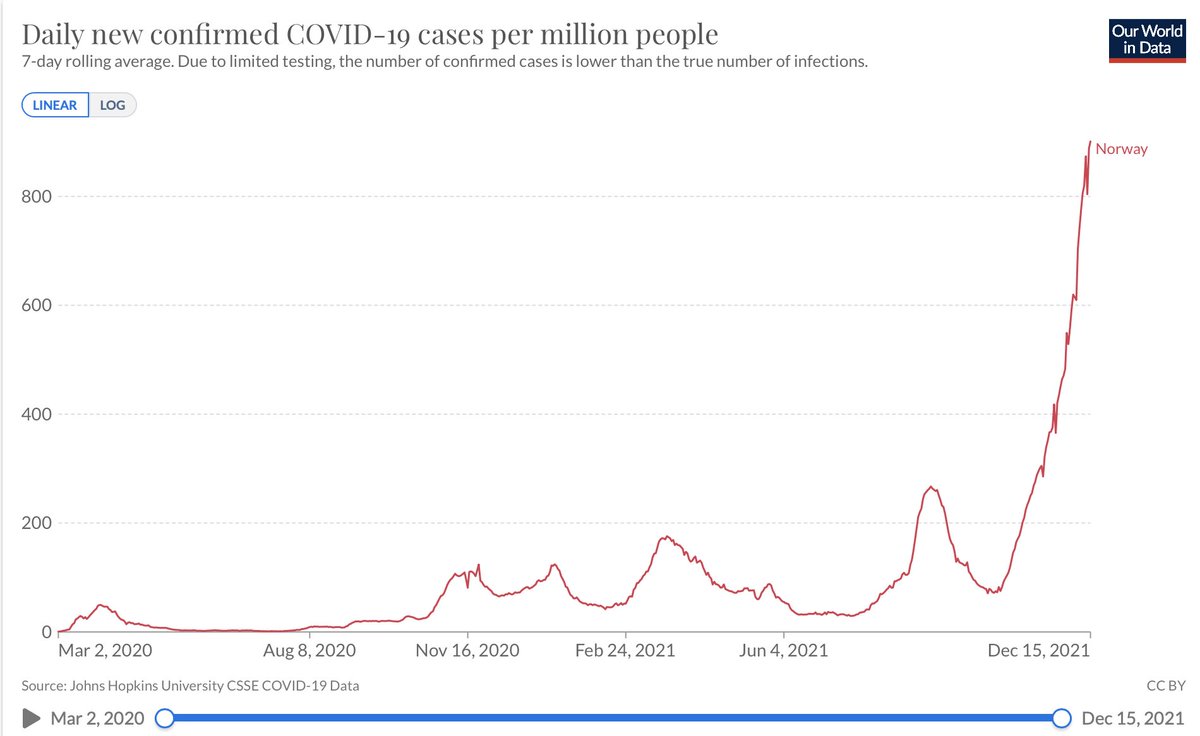
You must all be tired of this, but really:
There is still a lot of uncertainty about omicron’s characteristics, especially its severity.
Yes, there are more and more pieces of the puzzle, but they don’t fit together all that well and there are a LOT of questions and hypotheses.
There is still a lot of uncertainty about omicron’s characteristics, especially its severity.
Yes, there are more and more pieces of the puzzle, but they don’t fit together all that well and there are a LOT of questions and hypotheses.
You can look at the current data and come up with a lot of theories - and the less you know the easier it is for that theory to fit what you know.
But some of the smartest people I know have told me they are simply not sure what to think yet.
But some of the smartest people I know have told me they are simply not sure what to think yet.
Just one example:
I talked to @trvrb briefly yesterday (for a story to come later) and asked about data from South Africa on severity vs. early reports in Europe. He said: “I don’t know how to square these two things and that is probably giving me the most pause at the moment.”
I talked to @trvrb briefly yesterday (for a story to come later) and asked about data from South Africa on severity vs. early reports in Europe. He said: “I don’t know how to square these two things and that is probably giving me the most pause at the moment.”
@trvrb Could #omicron have changed to infect upper airways more and cause milder disease? Yes
Could the generation time be shorter leading to explosive but shorter outbreak? Yes
Could immunity to Beta in South Africa play a role? Yes
And so on and so on...
Could the generation time be shorter leading to explosive but shorter outbreak? Yes
Could immunity to Beta in South Africa play a role? Yes
And so on and so on...
@trvrb Point is: Scientists are doing the hard work of finding the right answers.
And we all have to do the (apparently similarly hard) work of not jumping to conclusions and living with the uncertainty for the moment.
(Politicians meanwhile have to make hard decisions NOW.)
And we all have to do the (apparently similarly hard) work of not jumping to conclusions and living with the uncertainty for the moment.
(Politicians meanwhile have to make hard decisions NOW.)
@trvrb It may look smart in retrospect if you say it’s milder now.
But honestly: It’s not much better than betting on red in roulette. You have a decent chance of being right. But you’re just gambling -
and I don’t want the people making decisions to gamble, given what’s at stake.
But honestly: It’s not much better than betting on red in roulette. You have a decent chance of being right. But you’re just gambling -
and I don’t want the people making decisions to gamble, given what’s at stake.
@trvrb A few days ago @EvolveDotZoo told me he felt like "variant watching" had become a spectator sport.
I think there is truth in that. And I understand it. This virus keeps changing our lives.
Of course we all want to know more as soon as more is known.
I think there is truth in that. And I understand it. This virus keeps changing our lives.
Of course we all want to know more as soon as more is known.
@trvrb @EvolveDotZoo But as with any spectator sport it can be nerve-racking to watch without the power to change the outcome.
So if you are anxious already it might also be good to check twitter a little bit less often.
So if you are anxious already it might also be good to check twitter a little bit less often.
@trvrb @EvolveDotZoo A lot of people here are like the guy at the bar who knows EXACTLY how the game will go even though the second half hasn’t even started.
So remember, as a wise man once said: The game is 90 minutes and in the end the germs win. (kidding, they won’t. and apologies to @GaryLineker)
So remember, as a wise man once said: The game is 90 minutes and in the end the germs win. (kidding, they won’t. and apologies to @GaryLineker)
@trvrb @EvolveDotZoo @GaryLineker Given what we know so far, the consensus from scientists is clear that we have to assume #omicron can cause massive harm at a societal level.
And as many scientists have pointed out: We will see how #omicron behaves in the real world long before we understand exactly why.
And as many scientists have pointed out: We will see how #omicron behaves in the real world long before we understand exactly why.
• • •
Missing some Tweet in this thread? You can try to
force a refresh







